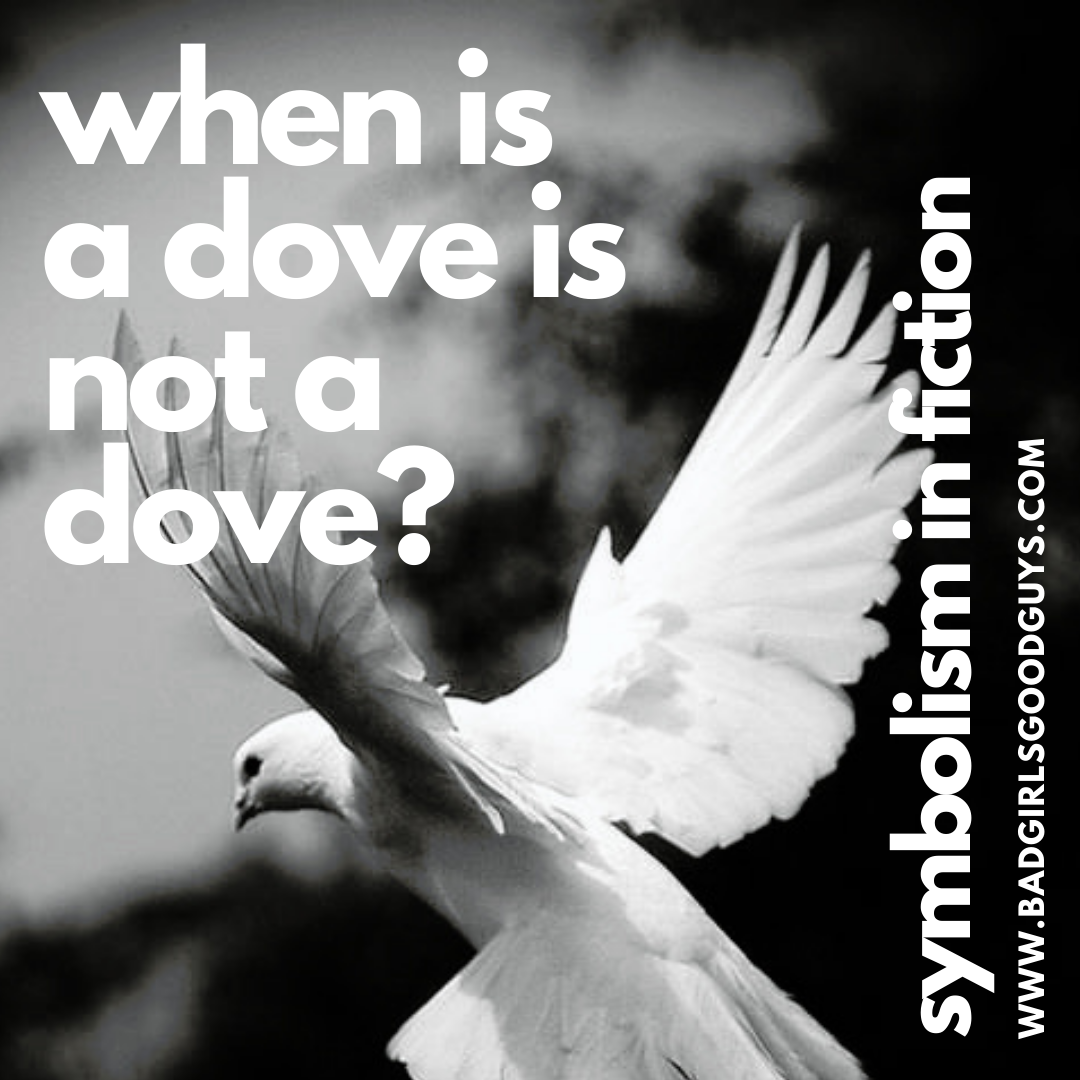When is a dove not a dove? Symbolism in fiction.
We’ve heard it all before.
“It’s never just rain. It’s baptism.”
“Sometimes rain is just rain.”
“Two brothers fighting is always a reference to Cain and Abel.”
“No. They just happen to be on opposite sides of a civil war.”
Symbolism. It colors so much of our writing. And yet we are so divided by it. Some embrace it. Some claim it ruined reading for them. Some say it’s everywhere. Some say most of it is hogwash.
This week we’re looking at how we writers balance our straightforward plot writing with our metaphorical and symbolic writing — if at all.
Where would you rate your work on a scale from “the plot IS the story” to “the true meaning is hidden in the symbolism”? Why?
Maya Preisler: I’m very close to the end of the spectrum where the true meaning of my writing is hidden in the symbolism because that’s how my brain functions. I analyze and over analyze the world around me so my writing does the same in reverse. I want to invite my readers on a journey that can go as deep as they are comfortable taking it. I like the idea of rewarding the very clever ones with extra information other people never figured out, like the ultimate Easter egg.
Bobby Nash: I sometimes pepper my stories with symbolism, but for the most part, the story is the story. My stories tend to be more character focused/driven. Sadly, I’m not that deep.
Ef Deal: The plot is the story, yes, but the plot is played out by characters whose motivations touch a deeper level. Book 1, for example, has the vicious Count Draganov, who has no compunction about stealing the souls of the dead, just as his son had no compunction about raping my MC and leaving her for dead. Book 2 has a vampire pursuing my MC, and the MC has to reckon with her position as someone who is vulnerable. And so forth… I think a novel should operate on three levels: action, character, and audience. Symbolism helps connect to the audience.
Nancy Hansen: I’m on the lower end of the scale as a writer because I really don’t make much effort to consciously work symbolism into my writing. If it appears it’s simply part of the characterization or the plot. I’m not a big planner when it comes to writing, most of my stuff just evolves from some seminal idea as I bang on the keyboard.
John French: Some people who have read my stories have found meaning in them I did not consciously put in. On hearing that, I decided to let my subconscious do the heavy lifting while I just write the stories.
Nikki Nelson-Hicks: I tend to allow symbols to grow organically. If I try too hard, it just becomes too twee.
John L. Taylor: I tend to overkill on symbolism. I find it to be an effective method of commentary without being blatant about it. Some of my imagery is more obscure and cryptic than others, but the use of symbolism serves me well and makes my work more satisfying to myself. Perhaps that’s the greatest downfall there, writing becoming self gratifying to the extreme. But I say don’t fear to use symbolism, especially in horror fiction.
Elizabeth Donald: Before approaching my MFA program and exploring literary fiction, I’d definitely put myself higher on plot than symbolism. To a certain extent, I hold the same beliefs now: I feel that if you’re trying for symbolism, if you have to force the True Meaning of This Story, you’re probably writing a boring story.
Read the full article:
https://seanhtaylor.blogspot.com/2022/02/when-is-dove-not-dove-symbolism-in.html

